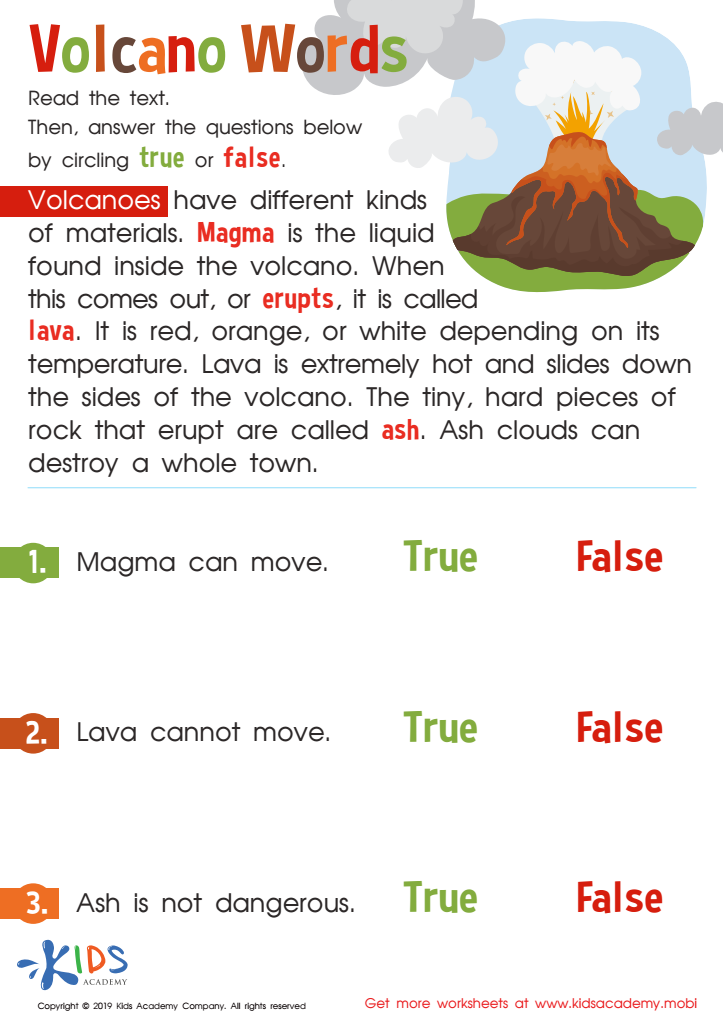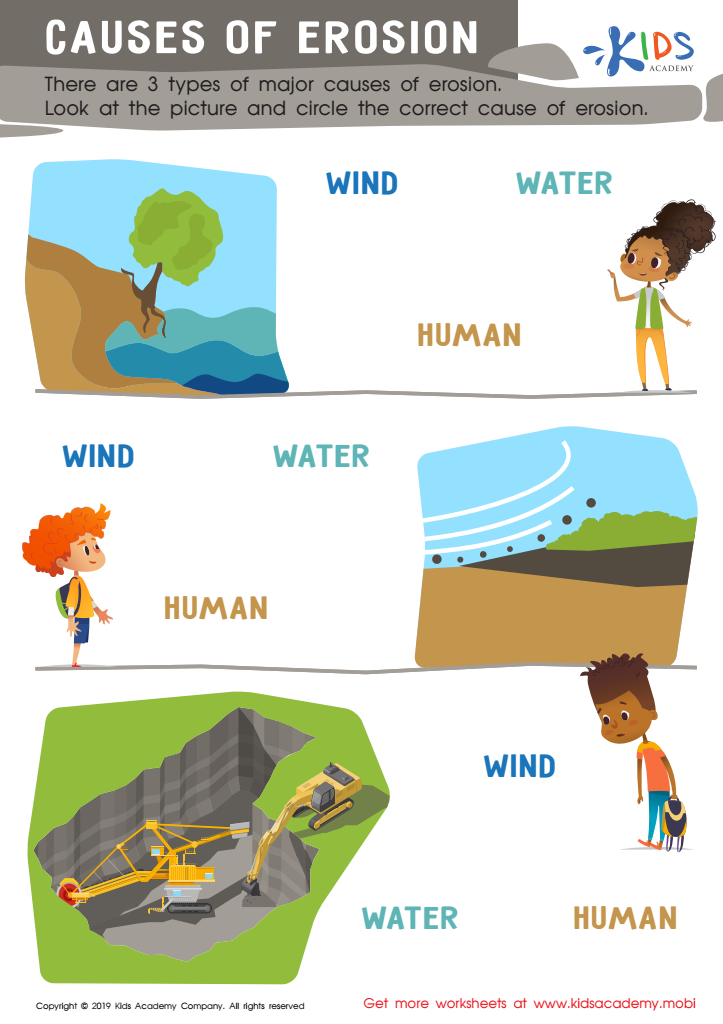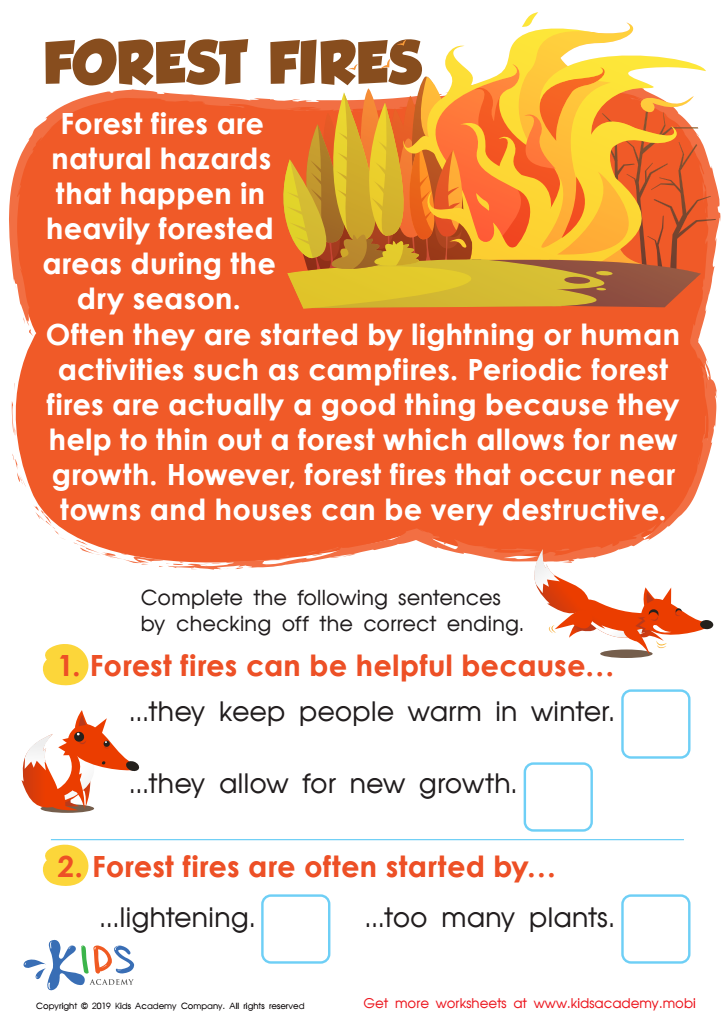Comprehension improvement Our Planet and Environment Worksheets for Ages 8-9
3 filtered results
-
From - To
Enhance your child's understanding of our planet and environment with our specially designed worksheets for ages 8-9. Focused on comprehension improvement, these engaging activities help young learners grasp key concepts while enjoying the process. Each worksheet includes age-appropriate exercises covering topics like ecosystems, natural resources, and conservation. They'll not only improve their reading comprehension skills but also gain a deeper appreciation for the world around them. Perfect for both classroom use and homeschooling, our curated resources foster curiosity and environmental awareness in your 8-9-year-old. Start their educational journey towards a brighter, greener future today!


Volcano Words Worksheet


Causes of Erosion Worksheet


Forest Fires Worksheet
Comprehension improvement concerning our planet and environment is crucial for children aged 8-9, blossoming young minds just beginning to grasp the world’s complexities. At this age, inculcating a sense of environmental stewardship can lay a lifelong foundation of responsible behavior and positive habits.
Firstly, building comprehension about environmental issues helps children understand the significance of their actions, fostering a sense of responsibility. They learn that simple activities, like recycling or conserving water, can make a big difference. Early awareness can translate into educated choices, reinforcing values like sustainability and respect for nature.
Moreover, nature-focused learning encourages curiosity and critical thinking. Addressing topics such as pollution, natural resources, and climate change not only broadens their knowledge base but also enhances problem-solving skills. Children learn to question, analyze, and think critically about real-world issues.
Furthermore, understanding environmental impact nurtures empathy. It teaches children to care not just for their immediate surroundings, but for different life forms and ecosystems. This empathy can extend to broader social contexts, making them more considerate and compassionate individuals.
Lastly, comprehensive environmental education aligns with broader academic content, enriching subjects like science, geography, and even literature. It promotes a holistic view of education, blending foundational knowledge with meaningful, practical lessons about the natural world.
By embedding environmental comprehension at this pivotal age, parents and teachers empower children to grow into well-informed, responsible, and empathetic adults. This foundation is indispensable for both the individual's development and the Earth's future.
 Assign to My Students
Assign to My Students



















